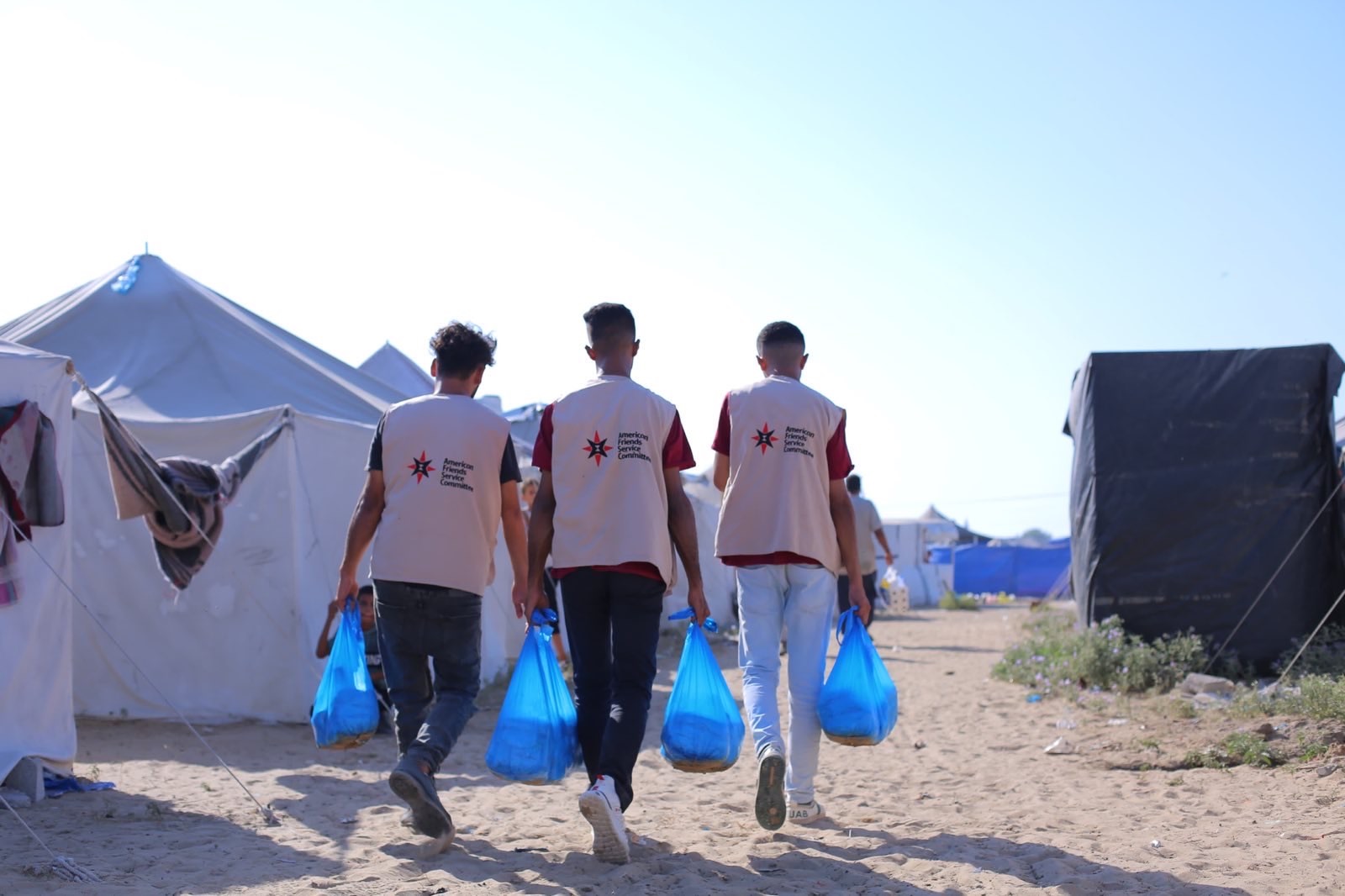
I am writing to share an update on our ongoing humanitarian work in Gaza, where conditions have deteriorated to catastrophic levels. Aid entering Gaza has plummeted to its lowest level in over a year, despite U.S. government demands for improvements from Israel. In northern Gaza, Palestinians have been effectively cut off from remaining lifelines. People are facing starvation, severe shortages of clean water, and scarcity of essential supplies.
In the face of these dire circumstances, AFSC’s team in Gaza has continued to deliver life-saving assistance, thanks to supporters like you. Since late October, we have established three community kitchens, two in Khan Younis and one in Deir El-Balah. Every day, we serve hot meals to 350 people across nine different camps. Our dedicated staff, partners, and volunteers have continued this vital work, although 60% of local kitchens have been forced to close because of the lack of raw materials.
Over the past year, our humanitarian relief efforts have focused on reaching the most vulnerable: displaced families in makeshift camps, seniors, women and girls, children, people with disabilities, pregnant women, mothers with newborns, and patients with chronic conditions. In the past month alone, we have:
- Distributed over 100,000 gallons of drinking water, reaching nearly 90,000 people.
- Provided baby formula, diapers, and other essential support for infants and children.
- Delivered hygiene kits with soap, detergent, sanitary napkins, detergent, and more to prevent disease and help people live with dignity.
- Secured 200 blankets to distribute in the coming weeks.
As winter approaches, we are ramping up our efforts to find warm clothing and shelter materials in Gaza. We also recently learned that a truck of essential supplies that we had procured from Jordan was finally allowed into Gaza, after months of being held up by Israeli authorities at the border. The truck includes mattresses, shoes, and underwear, which we will distribute in coordination with local partners to reach those most in need.
The scale of the humanitarian crisis in Gaza demands immediate action. Today, our relief efforts are more urgent than ever. But we cannot forget that humanitarian aid alone will not end this crisis. Every day that Israel refuses to let more aid into Gaza costs even more Palestinian lives.
We must keep urging Congress to demand a permanent cease-fire and humanitarian access. We also need them to stop sending weapons to Israel. I hope you join us in advocating with Congress today.
